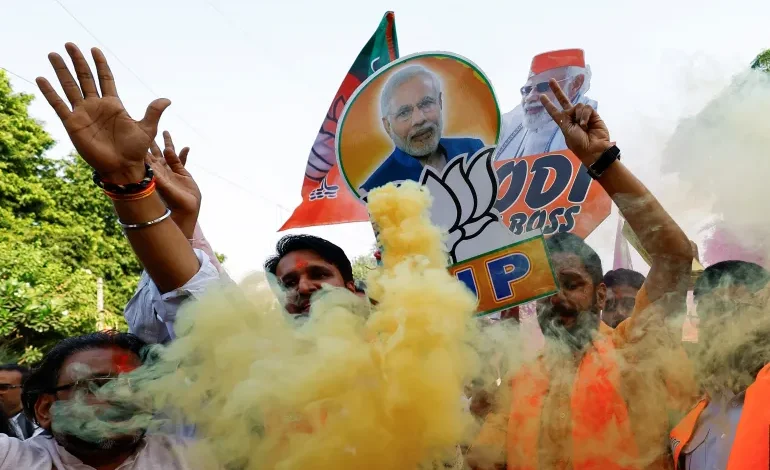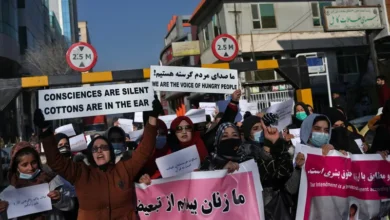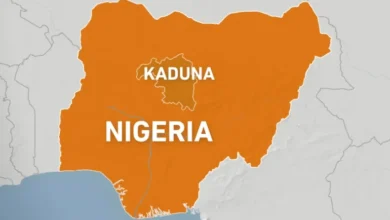‘Big setback’: Why India’s Congress lost out to Modi in key state election

Four months after losing its majority in parliament for the first time in a decade, Prime Minister Narendra Modi’s Bharatiya Janata Party (BJP) secured a record third term in the northern state of Haryana and scored its best ever performance in Indian-administered Kashmir, marking a dramatic turnaround.
The results of the two northern states’ assembly elections announced on Tuesday also represent a significant setback for the opposition Congress party’s bid to end the BJP’s dominance over electoral politics in India since 2014, political analysts told Al Jazeera on Wednesday.
The Congress leads the opposition Indian National Developmental Inclusive Alliance (INDIA) that won 234 seats in the parliamentary election, of which results were announced in June, forcing the BJP – which won 240 seats in a house where the majority mark is 272 – to rely on allies to form a government.
But in Haryana, the Congress lost the election despite exit polls predicting it would win comfortably amid anger against the state’s BJP government among sections of people, including farmers and champion wrestlers.India’s grand old party also recorded its worst-ever performance in Jammu and Kashmir in the first legislative election there since New Delhi stripped the region’s autonomy in August 2019. However, the Congress will still be a part of the next government in Kashmir as its regional alliance partner, the National Conference (NC), outran the BJP to secure the numbers needed to lead the next administration.“But the results proved a booster for Modi’s BJP, which now has oxygen to feel more confident in New Delhi, and [the victory in Haryana] gives the BJP more heft in the important upcoming state elections.”
Four key states – the national capital territory of Delhi, Maharashtra in the west, and Bihar and Jharkhand in the east – are scheduled to vote in a few months.
The battles within
In the last parliamentary election results, the Congress won five of Haryana’s 10 seats – the BJP won the other five. It was a major shift from the last national election, held in 2019, when the BJP swept all 10 seats.
But in the state election, the main opposition party “failed owing to the internal differences between the Congress’s central and state leadership, and the battles within the state factions”, said Asim Ali, a political researcher and columnist.
As per the data from the Election Commission of India, the BJP’s vote share in the state jumped by 3.4 percentage points to 39.89 percent as compared with the 2019 state election. The Congress’s gain was much larger – from 28.08 to 39.09 percent. However, a closer look reveals that the opposition’s gains were carved out from the vote shares of other regional parties, not the BJP’s support base.
As a result, the BJP won 48 seats in the latest state elections, an increase from the 40 seats it secured in 2019, while the Congress secured 36, up from 31. The majority mark is 46 in the 90-member assembly.
“We literally lost because of our own differences and the ego of old veterans that refuse to cede any space,” said a senior politician who is an executive member of the Haryana Congress unit, requesting anonymity.
“From monopolising candidate nominations to the campaigning strategy, Haryana Congress was taken over by the Hooda family and the disappointing results are in front of us,” they said, referring to former chief minister and Congress leader Bhupinder Singh Hooda.

Though the differences in the state unit were no secret, Ali, the political researcher, said the Congress’s central leadership gambled by betting on Hooda’s caste-based politics that appealed to voters from Haryana’s dominant Jat community, which wields influence over nearly 40 seats. On the other hand, the BJP’s “local level management of the election seemed to have done the maths for them”, Ali added.
“The Congress’s inability to course-correct paints a troubling portrait of central leadership deficit, particularly the ability to assertively push through tough changes on the state level,” said Ali.
Meanwhile, in an unprecedented move, the Congress has refused to accept the results in Haryana, alleging manipulation of the electronic voting machines (EVMs) to rig the results. “[The results] go against ground reality,” said Jairam Ramesh, a party spokesman.
No leading political party in India has ever refused to accept election results in India before.
“[The BJP’s] victory of manipulations, subverting will of people and a defeat of transparent, democratic processes,” he said, adding that they will lodge complaints with the poll body and fight it further. “The Haryana chapter is not closed yet.”










